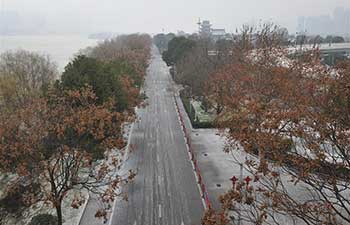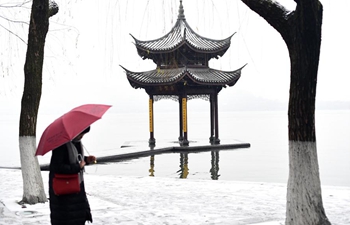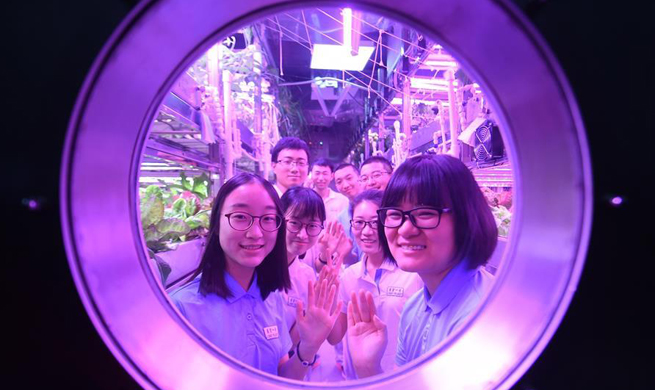by Xinhua Writers Wang Haiqing, Liang Junqian
BEIJING, Jan. 26 (Xinhua) -- Just as political and business leaders worldwide streamed to the Swiss resort of Davos to explore ways of tackling global challenges, free trade took a hit.
In an overt act of protectionism, the United States slapped steep tariffs on imports of washers as well as solar cells and modules earlier this week, resorting for the first time since 2001 to the so-called Section 201, an outdated tool under the Trade Act of 1974.
That was just the latest in a string of cases where Washington wielded the protectionist stick. In the past few weeks, the U.S. government blocked the acquisition of a U.S. payment company by an affiliate of Alibaba Group, and forced telecom company AT&T to scrap a plan to offer its customers Huawei handsets.
Such moves smell of U.S. President Donald Trump's signature self-centered "America First" policy. But if they were intended to protect U.S. interests, they would not work, just as painkillers are not cures.
Domestically, the hefty tariff on solar products, as U.S. industry analysts and pundits have pointed out, "will hit U.S. workers and consumers hard" and leave "almost everyone unhappy."
The U.S. Solar Energy Industries Association has predicted that the hike could cut solar installations this year by nearly 20 percent and lead to the loss of 23,000 jobs in the United States.
It might also "trigger a tsunami of new requests for trade barriers under this Section 201 law" and result in higher consumer prices and fewer purchases, thus imposing costs on the U.S. economy, said Chad Bown, a trade expert at the Peterson Institute for International Economics, a Washington-based think tank.
Globally, the countries struck by Washington's protectionist stick might retaliate, which would likely set off a chain reaction whose consequences are hard to predict. Some say they have heard the first shot of a trade war. Alas, there are no winners in a trade war.
More important is that should the situation spiral out of control, more countries would fall victim. Ten years after the 2008 international financial crisis, major economies are finally all in growth gear. But the still fledgling recovery is far from turning into sustainable growth, and thus vulnerable to disturbances.
To find the real cure, Washington needs to locate the focus. In the U.S. socioeconomic pains, particularly job losses, international competition does play a role, but not so much as the inevitable industrial upgrading thanks to the unstoppable technological advances.
Thus counting on trade barriers misses the point. In the tides of the Fourth Industrial Revolution, the right treatment is to ride the waves and pursue innovation.
Just as Chinese President Xi Jinping stressed in a landmark speech at Davos a year ago, countries should seize the opportunities presented by the new round of industrial revolution, develop new growth models, and cultivate new industries and new business models, so as to create new jobs and restore public confidence and hope.
That should not be a tall order for Washington. As the largest developed country, largest economy and sole superpower in the world, the United States boasts a highly competitive workforce and a big edge in the global quest for innovation.
Given that, in order to end the pains for good, Washington had better throw away its protectionist stick and pick up the innovation wand.

















